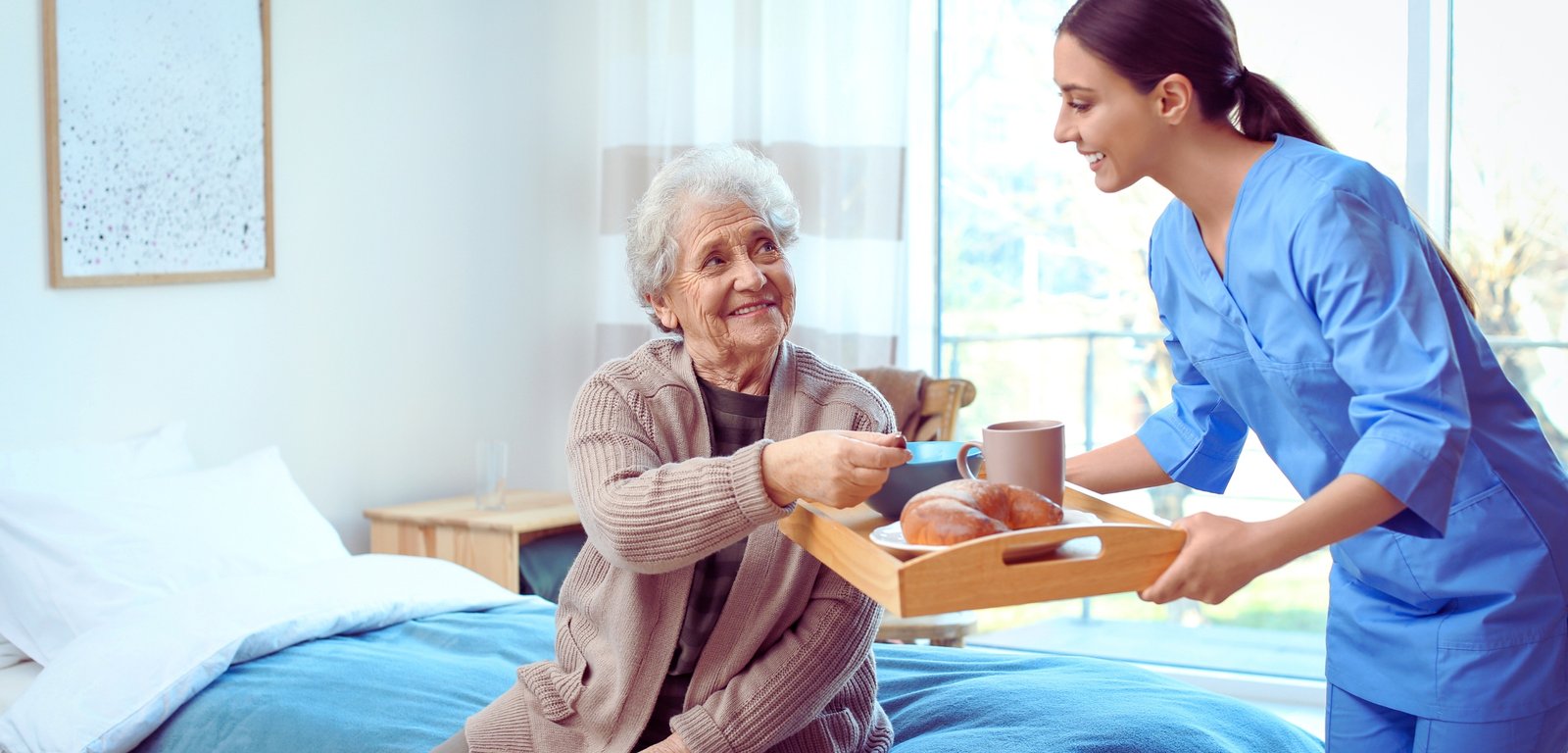No products in the cart.
What is health and social care? This type of work gives you the chance to help others, choose from many jobs, and do something that matters. It teaches useful skills and helps you understand how care and health services work — while you build a job that makes a difference.
When a nurse visits a man getting better after surgery at home, that is health and social care. A child with special needs getting help from a classroom assistant — that’s health and social care too. An older person moving into a care home with help day and night also receives health and social care.
What is Health and Social Care in the UK?
Health and social care is a big system made of two main types of help. Health care means medical help that treats sickness, keeps people healthy, and looks after long-term health problems. This includes GPs, hospitals, nurses, therapists, and other health staff. Social care means help that supports people in daily life, especially if they are older, disabled, or need help with simple tasks. This might include washing, eating, or support at home.
In the UK, the NHS (National Health Service) is in charge of health care. Local councils usually provide social care, though many services also come from charities or private companies. Together, they help people get the right care when they need it.
Since the Health and Care Act 2022, these two types of care work more closely. The goal is joined-up care — especially for people who need both, like someone with dementia who needs medicine and visits at home.
Who Works in Health and Social Care?
Many jobs are part of this system. Some focus on medical help. Others help people in their daily lives. All aim to make life better.
- Nurses care for people in hospitals, homes, and the community.
- Doctors and GPs find out what is wrong and give treatment.
- Social workers help people with family, housing, or mental health issues.
- Care assistants help people wash, get dressed, eat, and feel less lonely.
- Support workers help people with learning difficulties, mental health needs, or autism.
- Occupational therapists help people live on their own after being ill or hurt.
- Physiotherapists help with movement, pain, and healing.
All these workers team up. They focus on the whole person — not just illness, but their life, wishes, and wellbeing.

What Services Do Health and Social Care Provide?
The system helps people in many ways and at all ages. Services include GP offices, hospitals, emergency help, care homes, help at home, mental health services, and support in local areas. It also includes help with recovery and care for people at the end of life.
This care is there for every stage of life. From birth to old age, health and social care supports people.
Why Health and Social Care Matters
Health and social care keeps people safe, well, and able to live on their own. It helps those who need it most and steps in during hard times. By offering support early, it stops problems from getting worse. The system also protects both children and adults from harm.
People get help to heal after sickness or injury. The system supports mental health. It cares for people with health problems that last a long time. It also helps people stay in their own homes and keeps hospitals from being too full.
Without it, people would be alone. With it, people can live better, even with big needs.
What is Health and Social Care? Explained Through Everyday Life
Health and social care happens in simple, real ways. A midwife visits a new mother to check on her baby. A care worker makes meals for someone with Parkinson’s. A nurse helps a teen deal with diabetes. A social worker finds a safe place for someone escaping harm. A key worker helps a young adult with autism take part in a local group.
This care is not just about medicine. It’s also about feelings, support, and daily needs. It cares about choice, respect, and human connection.
Preparing for a Diploma in Health and Social Care
Many people begin their career with a diploma in health and social care. These are practical courses that mix learning with time spent helping others. Students learn about how people grow, staying safe, communication, care values, and more.
You can take a diploma at different levels:
- Level 2 is best for people new to care work.
- Level 3 is a good step for senior roles or nursing training.
Colleges, training centres, and online sites offer these courses. Some lead straight to jobs. Others lead to more study.
Many employers now support “earn while you learn” paths. You might work as a care assistant while doing your Level 3 diploma. It’s a good way to build skills and feel more sure of yourself.
What are the Benefits of a Health and Social Care Degree?
A health and social care degree opens many doors. It gives you real-world knowledge and helpful skills. It also gets you ready for lots of jobs.
Some top benefits include:
- Job choices: Work in the NHS, councils, charities, or private care.
- High need: The UK needs more care workers every year.
- Flexibility: Jobs can be full-time, part-time, or shifts.
- Career steps: Use your degree to move into nursing, social work, or leading teams.
- Purpose: Help people every day, and see the change you bring.
A degree makes you more confident. It helps you learn about health rules, values, communication, and care skills. You also learn how to support people from all walks of life. These skills matter everywhere.
Pathways from a Health and Social Care Degree
A health and social care degree will lead to many jobs. It’s a top choice for people who want to help others and feel proud of their work.
After you finish your degree, you could go into jobs like:
- Social worker
- Youth worker
- Mental health worker
- Community support worker
- Support planner
- Care home leader
Some people go on to more training:
- Nursing
- Midwifery
- Occupational therapy
- Physiotherapy
- Social work
This degree teaches wide skills — communication, planning, and solving problems — that work in many areas.
Key Values in Health and Social Care
Health and social care is not just about doing tasks. It is also about what you believe. These values shape how people give and get care.
Dignity means treating people with respect and letting them choose. Compassion means being kind and caring. Inclusion means making everyone feel welcome. Independence means helping people do as much as they can on their own. Safety means keeping people safe from harm.
Workers follow clear rules. Groups like the NMC (Nursing and Midwifery Council) or the HCPC (Health and Care Professions Council) set these rules. Care workers also follow the Care Certificate standards.
Legal Duties and Safeguards
Laws shape how care is given. The Care Act 2014 sets rules for adult care in England. The Children Act 1989/2004 protects children’s needs and safety. The Equality Act 2010 stops unfair treatment in care and jobs. The Mental Capacity Act 2005 provides protection to people who can’t make some choices. The Human Rights Act 1998 sets out basic rights in care.
All care must follow these laws. This makes care fair, safe, and respectful.
Challenges in Health and Social Care (2025)
In 2025, the system has some big problems. The UK needs many more care workers and nurses. More people are living longer with more health needs. Mental health services are under pressure, especially for young people. Councils and the NHS have limited money. Health and social care still find it hard to work as one team.
But there is hope. New plans like the NHS Long Term Workforce Plan aim to fix staff shortages. More training and digital tools help services do more with less. There’s more focus on stopping health problems before they start.
The Future of Health and Social Care
Care is changing. New tools like video calls, health apps, and online support help people stay safe at home. Care is becoming more personal — based on what people want, not just what is offered.
Joined-up care is growing too. Hospitals, GPs, councils, and charities are working better together. These changes help give people smoother, simpler care — especially if they need ongoing support.
More people now see care as a good job. With the right training and help, you can build a path that works for you.
Health and Social Care is About People
In the end, health and social care is about people. It means helping someone heal and being there for someone who feels alone. It means lifting up those who need support.
Whether you work in care, study it, or receive it — it touches almost every life. And as we move forward, one thing is still true: health and social care matters.
Interested in getting started?
Enrol in our online health and social care courses at Course Cave and start your journey today.




